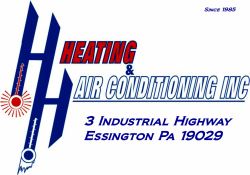 Are you looking for a more efficient heating and cooling system? HVAC systems being your biggest energy expense, ductless systems offer significant opportunities for savings. These heat pump style systems offer some of the highest SEER ratings in the industry. Boasting ratings of up to 30 SEER, they can shave 30-40% or more off of your annual energy costs compared to traditional, forced air systems. They are the solution of choice for newly constructed homes, as well as small, older homes with no existing ductwork currently relying on a radiator or baseboard heating.
Are you looking for a more efficient heating and cooling system? HVAC systems being your biggest energy expense, ductless systems offer significant opportunities for savings. These heat pump style systems offer some of the highest SEER ratings in the industry. Boasting ratings of up to 30 SEER, they can shave 30-40% or more off of your annual energy costs compared to traditional, forced air systems. They are the solution of choice for newly constructed homes, as well as small, older homes with no existing ductwork currently relying on a radiator or baseboard heating.
Ductless Units Can Heat & Cool Your Home
Ductless mini-split heat pumps, such as those by industry leader Mitsubishi, work by transferring heat. In the winter, they move heat from the outdoors into your home, and vice versa in the summer, by reversing the flow of refrigerant. Ductless systems featuring the latest heating technology offer reliable performance, even when it’s below freezing outside. This multifunctional operation means you can achieve all your home comfort needs, reliably, with a single system.
Ductless Systems Are Simple To Install
Mini-split systems consist of one outdoor unit and one (or more) indoor units. Each component takes up far less space than traditional forced-air systems. This is where the name “mini-split” comes from. No boxy ducting is needed. Instead, only small, 3-inch holes are necessary to accommodate refrigerant lines running between interior and exterior components. Lack of ducting means improved efficiency and no heat loss, as well as whisper quiet operation. Refrigerant lines facilitate heating and cooling performance, and the indoor units distribute air, offering substantial energy savings and superior performance.
Mini Split Systems Offer Zoned Based Heating & Cooling For Enhanced Savings
Ductless systems can accommodate up to eight indoor air handling units for each outdoor unit. This can allow you to create zones in your home, varying temperature settings separately by location and use. Purchasing two outdoor units for larger homes can offer significant savings, providing a green, low carbon, year-round home comfort solution.
The More Efficient Your Home, The More Substantial The Savings
While ductless systems offer superior performance and energy savings compared to ducted systems, in order to maximize savings, efficient home design is essential. Adequately insulating your home and addressing air leaks around windows, doors, plumbing, electrical, and venting, prevents the energy savings from ductless systems from seeping out of your house. Fortunately, there are many available state and local energy efficiency upgrade incentives, including those from your utility provider, to help you improve the performance of your home’s building envelope.
Wondering if a ductless mini-split heat pump might be a good fit for your home? Schedule an appointment with the home comfort experts at H & H Heating & Air Conditioning today.
This blog was originally posted on https://www.delcohvac.com/blog/all-about-ductless-mini-split-heat-pumps/

